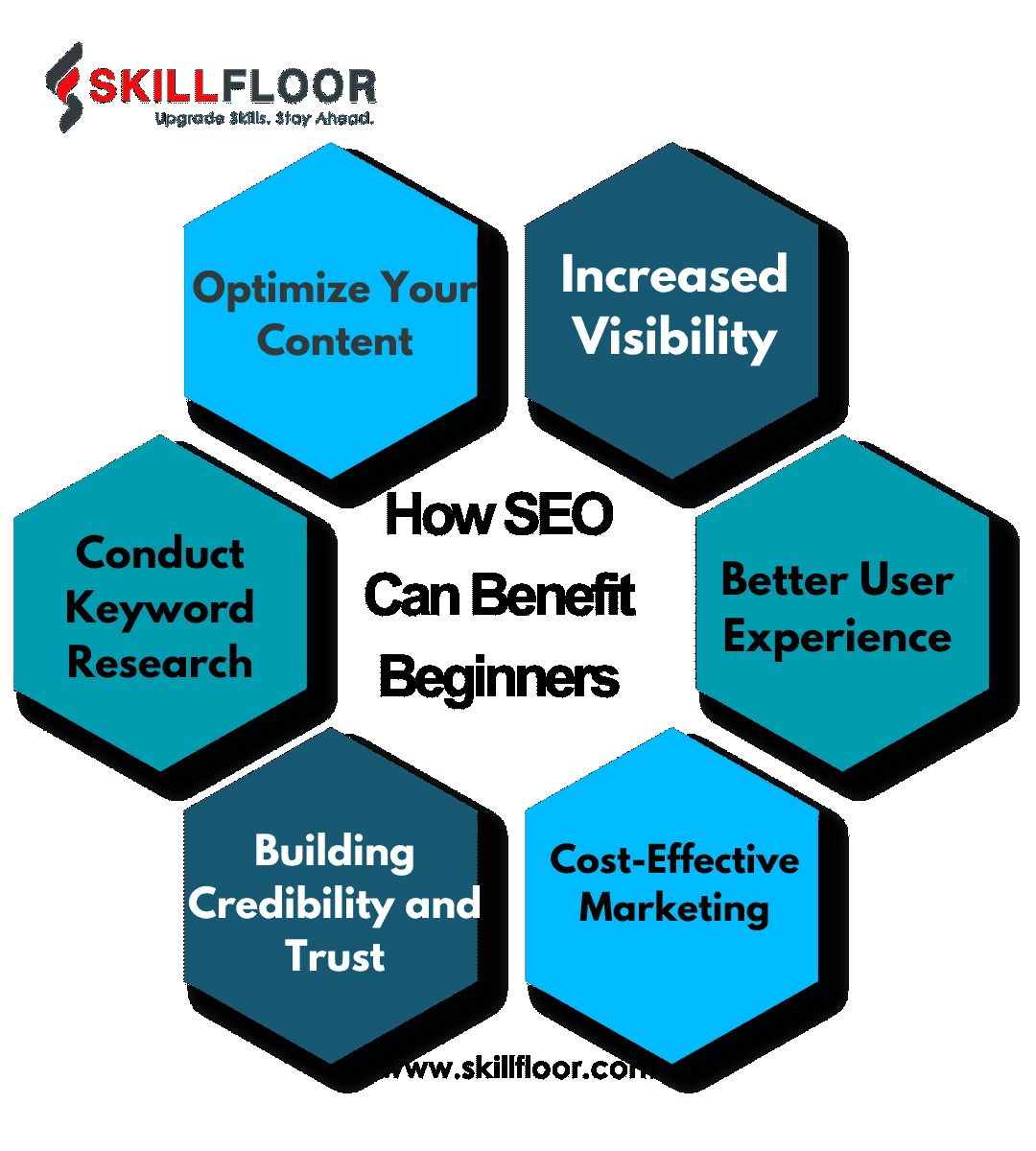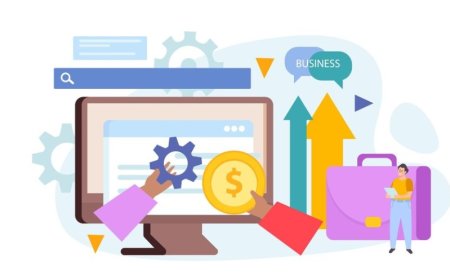The Scope of SEO for Beginners
Learn the basics of SEO, The guide covers key concepts and techniques to help you improve your website's ranking. Perfect for beginners.

Hey there To the beginners on SEO! Understanding the scope of SEO for beginners is important for anyone looking to improve their digital strategy successfully. The following text provides a thorough introduction to the basics of search engine optimization. As we go into every aspect of SEO for beginners, you'll learn how to manage the difficulties of SEO methods and principles that produce major online visibility and success. as we look at the important strategies that will help you maximize your internet presence.
What is SEO, and why is it important?
SEO stands for Search Engine Optimization, which is a strategy for increasing your website's visibility on search engines such as Google. The better your SEO, the higher your website will rank in search results. Suppose you own a coffee shop and want customers searching for "best coffee near me" to locate your business first. SEO helps search engines identify and rank your content, allowing more people to find what you have to offer.
Understanding The Scope of SEO for Beginners
If you're just getting started in Digital Marketing, understanding the scope of SEO for beginners can be the first step toward learning this important discipline. Yes, the importance of SEO for beginners can look challenging at first, but it's truly satisfying once you get used to it.
The Scope of SEO for Beginners to Focus On
To fully know the scope of SEO for beginners, it is necessary to understand its main elements. Here are some of the main areas to focus on:
Keywords are terms that users enter into search engines when looking for information. Choosing the correct keywords for your content is the first step toward a good SEO campaign.
-
High-Volume Keywords: These are keywords that receive a large number of searches. For example, if you write about Digital Marketing, "digital marketing tips" could be a popular term.
-
Long-Tail Keywords: Long-tail keywords are more specialized terms that drive focused traffic. For example, "digital marketing tips for small businesses" is a long-term term.
Keyword research involves identifying the terms that your target audience is looking for and implementing them into your content naturally.
2. On-Page SEO
On-page SEO refers to the optimizations you make directly on your website to improve its ranking. This includes:
-
Title Tags and Meta Descriptions: These are the snippets of text that appear in search results. They should be compelling and include your main keywords.
-
Content Quality: Ensure your content is valuable, informative, and engaging. Search engines prioritize content that answers users' questions effectively.
-
Header Tags: Use headers (H1, H2, H3) to structure your content. This makes it easier for search engines and users to understand the hierarchy of information.
-
Internal Linking: Link to other relevant pages on your site to keep visitors engaged and help search engines index your content better.
3. Off-Page SEO
Off-page SEO involves activities that happen outside your website but still impact its ranking. This mainly includes building high-quality backlinks from other reputable sites to your own.
-
Link Building: Acquiring links from other websites is crucial for SEO. These links act as votes of confidence from other sources, signaling to search engines that your content is valuable.
-
Social Signals: Although social media links don’t directly affect rankings, having a strong social media presence can drive traffic and indirectly boost your SEO efforts.
How SEO Can Benefit Beginners
Understanding the scope of SEO for beginners is not just about knowing what SEO is but also about seeing how it can benefit you. Here’s how SEO can make a difference:
1. Increased Visibility
SEO helps your website appear higher in search results, making it more likely that potential customers will find you. This increased visibility can lead to more traffic and greater opportunities to engage with your audience.
2. Better User Experience
Good SEO practices improve the overall user experience on your site. This includes faster loading times, mobile-friendly design, and easy navigation—all factors that keep visitors happy and coming back.
3. Cost-Effective Marketing
Compared to traditional advertising, SEO is a cost-effective way to reach a broad audience. Once you’ve optimized your site, the ongoing benefits of SEO can continue to drive traffic without requiring constant investment.
4. Building Credibility and Trust
Ranking high in search results can boost your credibility. Users tend to trust search engines, and appearing on the first page can make your site seem more reliable and authoritative.

Practical Steps to Get Started with SEO
If you’re ready to explore the scope of SEO for beginners, here are some practical steps to help you get started:
1. Conduct Keyword Research
Use tools like Google Keyword Planner, SEMrush, or Ahrefs to find relevant keywords for your niche. Focus on a mix of high-volume and long-tail keywords that your target audience is likely to search for.
2. Optimize Your Content
Incorporate your chosen keywords into your content naturally. Avoid keyword stuffing, which can hurt your rankings. Instead, aim for a balance where your keywords fit seamlessly into your text.
3. Improve Your Website’s Technical Performance
Make sure your site is fast, secure, and mobile-friendly. Use tools like Google PageSpeed Insights to check your site’s performance and identify areas for improvement.
4. Build Quality Backlinks
Reach out to other websites in your industry and see if they’ll link to your content. Guest posting, creating shareable infographics, and developing relationships with other site owners can help you earn valuable backlinks.
5. Monitor and Adjust
SEO is an ongoing process. Use analytics tools to monitor your site’s performance and make adjustments as needed. Keep an eye on your keyword rankings, traffic, and engagement metrics to see what’s working and what’s not.
Exploring the Scope of SEO
As you deeper into the scope of SEO for beginners, you’ll find that it’s a dynamic field with plenty of opportunities for growth and learning. Here’s a glimpse into how SEO can evolve with your journey:
1. Local SEO
If you’re a local business, optimizing your site for local search can help attract nearby customers. This involves adding location-based keywords and setting up a Google My Business profile.
2. E-commerce SEO
For online stores, e-commerce SEO focuses on optimizing product pages, category pages, and overall site structure to drive more traffic and sales.
3. Content Marketing
SEO and content marketing go hand in hand. Creating high-quality, valuable content that addresses your audience’s needs is important to boost your SEO efforts.
4. Voice Search Optimization
With the rise of voice-activated assistants, optimizing your content for voice search can help you stay ahead of the curve. This often involves targeting natural language queries and providing concise answers.
The digital world is ever-changing, and so are the strategies that drive SEO success. As a beginner, it’s important to keep learning and adapting. Follow SEO blogs, join forums, and participate in webinars to stay updated with the latest trends and techniques.
While the scope of SEO for beginners may initially seem difficult, It may appear intimidating at first, but with time and experience, it can become an essential component of digital marketing, dramatically increasing your online visibility and success. Begin small, keep learning, and watch as your efforts take your website to new levels in the world of technology.































































